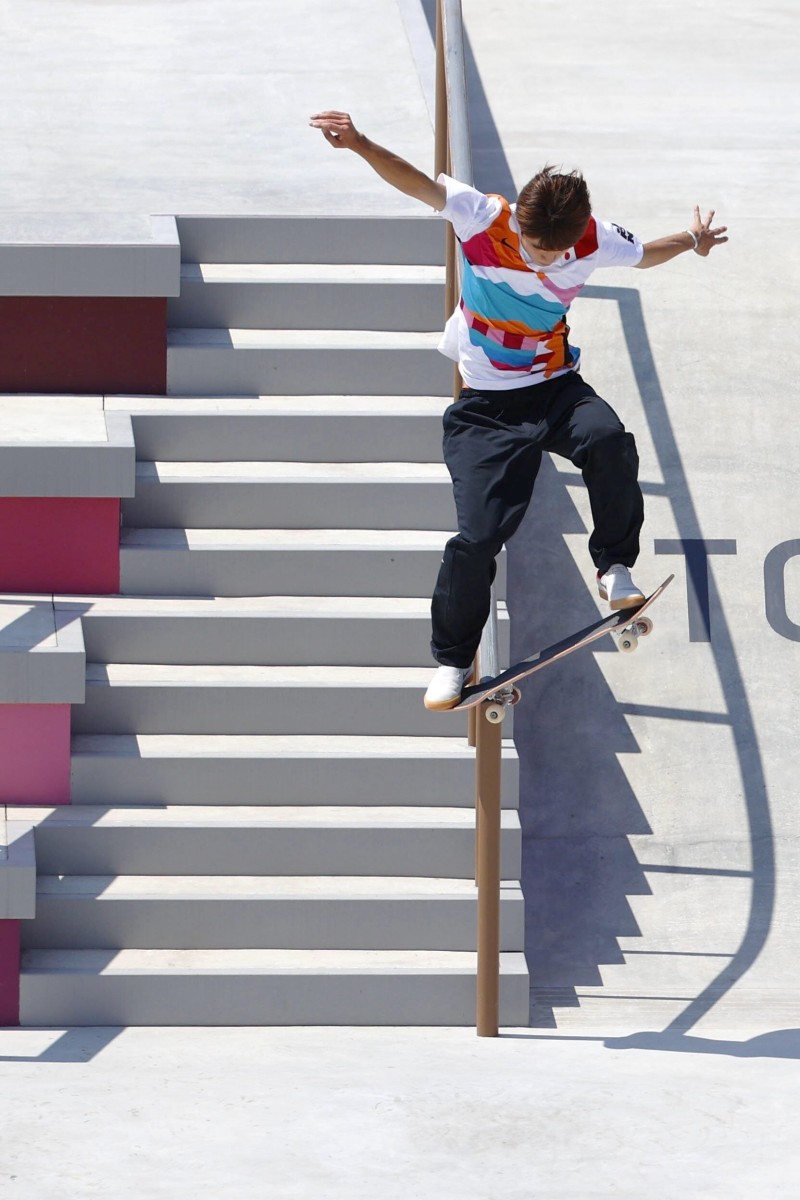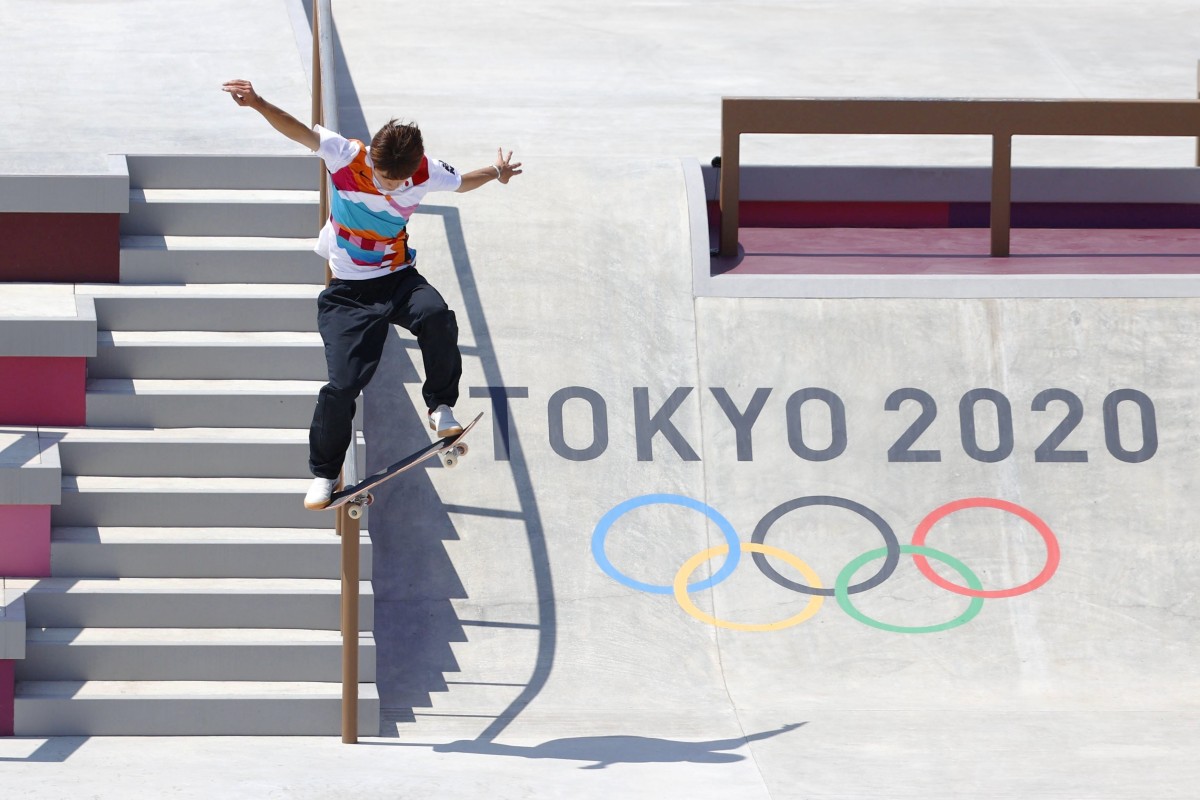
- Yuto Horigome encouraged teens to keep boarding by any means necessary, even if their parents aren’t supportive
- Japan dominated the sport in its debut year, as 13-year-old Momiji Nishiya and 16-year-old Funa Nakayama also took home prizes
 Japan’s Yuto Horigome competes in the men's street skateboarding finals at the Tokyo Olympics. Photo: Kyodo
Japan’s Yuto Horigome competes in the men's street skateboarding finals at the Tokyo Olympics. Photo: KyodoJapanese skateboarder Yuto Horigome, who took the sport’s first gold medal as it debuted at the Tokyo Olympics, has a simple but clear message to teenagers whose parents are no fans of the sport – get your hands on a board no matter what.
On his home turf, Horigome, 22, pulled off a series of monster moves at the Tokyo Games, taking home a gold medal – which he said he would hang around the neck of his Pokemon stuffed toy.
Siobhan Haughey’s journey to the Olympics
Two other young Japanese skateboarders, 13-year-old Momiji Nishiya and 16-year-old Funa Nakayama, took gold and bronze, respectively, in the women’s street skateboarding, demonstrating the country’s dominance in the sport.
In an interview with Young Post via Zoom, world champion Horigome encouraged teenagers around the world not to give up on learning skateboarding even if their parents were not supportive.
They could even try borrowing skateboards from people at skateparks, he suggested, or ask people for old skateboards they were discarding, before upgrading them.
Horigome (C) poses for a photo with silver medalist Kelvin Hoefler (L) of Brazil and bronze medalist Jagger East of the United States after winning the gold medal in the Tokyo Olympics men's street skateboarding. Photo: Kyodo
“Don’t give up on your dreams,” he emphasised. “Try your best to skateboard.”
He started skateboarding at the age of seven, when his skateboarder father, Ryota Horigome, handed him a board. Ryota is a taxi driver who works 10 hours a day, 28 days a month.
The senior Horigome did not even watch his son compete – he was too nervous. But his phone eventually alerted him to the win.
What you should know about star fencer Edgar Cheung Ka-long
With the Japanese skateboarders’ massive victories in the Tokyo Games, the world champion hoped skateboarding would become much more popular and that more teenagers would be encouraged to pick up a board.
In Japan, skateboarding is sometimes considered an activity for aimless youth. Not many Japanese were skateboarding when he started, the Olympian said. It took time to learn, but thanks to his father’s patience, he improved faster than his peers.
The junior Horigome first started skating in regular parks, and as he got better, he would travel 40 minutes by tram to practise at skateboarding venues.
When he was 14, he moved to Los Angeles, in the US, to skateboard with the best in the world. He made the decision to move there because the overall skateboarding level was higher, he said, and it would motivate him to be a better athlete.
“It’s been my dream to skateboard in the US – I have fulfilled my dream,” he said.
Take a look at Tokyo’s young athletes
He bought a four-bedroom home in Los Angeles last year and now spends half of his time there, and the other half in Japan.
He said he practised two to four hours every day, and would sometimes train seven days a week.
Asked what Japan needed to do to make skateboarding a more popular sport, he said the US had some of the world’s best skateboarding venues, and thus his country could start by building more skateparks. “It’s necessary,” he said.
